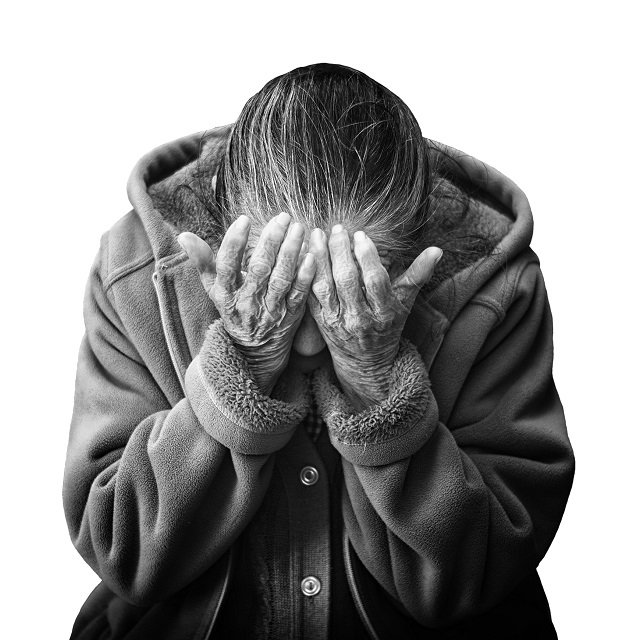Suffering and Fear
One of the questions that arises in discussions with TOS workers is whether we fear the suffering that we encounter in our work. Despite our Theosophical background, we are human. And despite being human, we carry within us the animal instinct to protect ourselves for our survival. We respond to threats in different ways. We either confront it, run from it, or just stand there unable to move. Granted, unless we live in the wild, we no longer need to worry about being eaten by animals, but everyday our fight, flight or freeze response is activated depending on what we are facing: the boss we don’t like, the homeless person we pass every day, the crabby neighbor who never says hello, whatever it might be, we respond by either avoiding them, “dealing” with them apathetically or, if in a place of power, begrudgingly. When looked at simplistically, these are all a response to fear.
Fear is an interesting emotion. It often surfaces as anger, jealousy, the need to make fun of everything, or even a false sense of contentment where everything is “fine.” Perhaps we fear the suffering of others because it reminds us that we too have our own difficulties to bear. Or we may be afraid that we will be rejected if /when we lend a hand to another whose trials are worse than ours. Suffering often causes us to take things very personally. Whether we are the ones being helped due to a difficulty or the one helping another, the feeling is very personal. Suffering tells us that things are not right. Or that we have failed in some sense. But why? It is a question we need to ask ourselves because it is often what stops us from reaching out to those in need or asking for help.
At an event the other day, a fellow volunteer confessed that he sometimes got tongue-tied when he was with someone in distress or needing help. He volunteered because he wanted to help others, but his head got in the way. We discussed his discomfort a bit and then I said “Start with hello, how are you?” He laughed at the simplicity and asked “Are you serious?” I was because it is really that simple. We get very caught up in the situation surrounding a person instead of just seeing the person and really listening to them. We need to forget the story, drop our own story as well (that includes our fear), and just listen. We can never harm someone by giving them our full attention and listening to them.
When we help another person because we truly care about them and what they are going through, we cannot go wrong. Nor can we go wrong when we allow ourselves to be cared for and helped by another. In the process of caring for the giver and the receiver, there is a softness that happens, a vulnerability and an intimacy, that puts us in touch with something extraordinary where there is no fear. It is a moment of compassion.
A friend of mine sent me a quote from Venerable Bhante Sujatha that states “Compassion is rooted in love, refined through practice, and established through action.” This quote summarizes the work of the TOS. The more we put ourselves in uncomfortable situations to help another (or ask for help), the more we refine and strengthen our practice of compassion. Where there is compassion there is no fear and when there is no fear, suffering itself, whether our own or someone else’s, changes.

